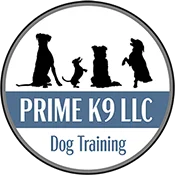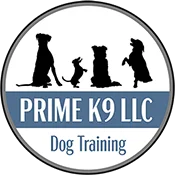The Prime K9 Dog Training Blog
Will My Pet's Age Affect Their Dog Training?

At Prime K9 Dog Training, we commonly hear the saying, "you can't teach an old dog new tricks." Dog training involves multiple factors. Here we will focus on the aspect we get asked about all the time: age.
Dog Training With Older Dogs
The age of your canine can impact how you approach training. Dogs of all ages can learn new things, but older dogs may not always learn as fast as younger ones. Adult dogs might have already established poor behaviors. These behaviors may seem challenging to unlearn, but they can be addressed with the right dog training program. Most any dog can learn new things with the right motivation.
Senior Dog Health Concerns
Dogs can develop health issues as they age. Some of the more common ailments include vision loss, obesity, joint pain, or hearing loss. Be mindful of how their stamina and mobility can limit their training. Dogs with arthritis or joint pain may find commands like "sit" or "lay down" uncomfortable if asked to do them multiple times in a row. Start with short training sessions and listen to your dog's body language.
Have your vet give your senior dog the all-clear before starting a new training program. Be reasonable about what you want to teach. You may need to adjust your training program for a dog in their golden years. Your dog might move more slowly because of stiff joints. Senior dogs can also go through cognitive changes. They might not respond as quickly to your training cues.
Keep working with your senior dog as they age. Dog training provides exercise and mental stimulation. We can help customize a training program to fit your goals and needs for your older dog.
How To Approach Training Dogs of Different Ages
Training an adult dog is often different than training a puppy. The approach will depend on the dog's temperament, experiences, and training history. Adult dogs can have longer attention spans and may be able to focus longer than puppies. They may also already have some basic training, such as house training or leash walking, which can help make training easier. Adult dogs may also have ingrained habits or behaviors that are more difficult to change. An adult dog who has spent years jumping on people may have a harder time breaking this habit than a puppy who hasn't learned it in the first place.
There are always new things for a dog to learn. Discover what motivates your dog. Use that motivation as a reward when training with a new skill. If your dog is food-motivated, use a special treat. Keep training sessions positive and short. Teach small steps to build up to the whole routine for complex exercises.
Work With an Experienced Trainer
Prime K9 Dog Training offers a variety of programs that can meet any training goal. Consider if your dog would benefit more from private lessons or group classes. Our private lessons are one-on-one, and we teach you how to do the training. Each lesson is focused on your dog's training goals, not a one size fits all training. We can meet you and your dog at any dog-friendly location, such as your home or park.
Training a dog at any age requires patience, consistency, and a good understanding of the dog's needs and background. It may require different training approaches to see results in an older dog compared to a puppy, but old dogs can still learn new tricks. Contact us today to get started on your dog training journey.

